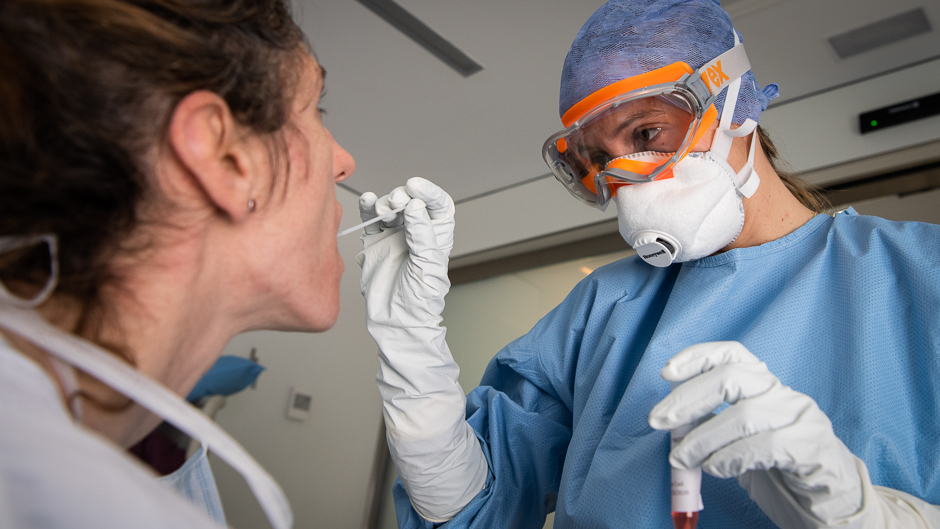General Health Tips & News
Are You Getting the Right COVID-19 Test? What Are The Types Of COVID-19 Test?
By A.G. (staff writer) , published on August 02, 2020

Medicine Telehealth Health
The ongoing COVID-19 pandemic has still shown only one effective solution, and it is a “test + isolation” strategy. World Health Organization has advised the government to perform tests, as much as possible.
The coronavirus has a basic structure, an outer shell, and inner genetic material. The basis of all tests is either to detect a virus and its parts or the defensive products of the body against it.
Let’s have a look at the types of COVID testing procedures and how they work.
1. PCR- Polymerase Chain Reaction
It is a process that detects the DNA material. A segment of DNA is selected and multiplied many times until it becomes detectable.
But the SARS-CoV-2 virus, the causative virus of COVID-19, is an RNA virus. Therefore, firstly, the RNA is converted to DNA via a process called reverse transcription. Then this DNA is multiplied and detected. Hence, it is called Reverse transcription-polymerase chain reaction (RT-PCR).
The type of sample is nasal or pharyngeal swab. But it is only effective in the first week of infection. After that, the virus has migrated to the lungs. At this time, sputum or deep airway specimen is the choice.
The PCR test is one of the most reliable tests but still has its limitations. It can also give a false-negative result. Additionally, it is time taking.
2. Antigen Detection
The antigen is a part of a virus that initiates the immune response of the host system. In the case of SARS-CoV-2, it is commonly the spike protein on the outer surface of the virus.
The specimen, nasopharyngeal swab, is exposed to strips containing artificial antibodies. Antigen-Antibody reaction takes place giving a visual indicator. This test can be performed on a mass scale as it is an easy test and doesn’t require any special training. The disadvantage of this test is that it can give false-negative results depending upon the number of antigens in the sample. Otherwise, it is a very accurate test and gives true positive.
3. Antibody Detection
Antibodies, also known as an immunoglobulin (Ig) are proteins that are formed in reaction to the antigen. These proteins circulate in the blood and kill the virus. There are two types of immunoglobulins produced against the virus.
The first is IgM. This antibody develops after a few days of infection and declines over time. The second antibody is IgG. It forms almost after 14 days and remains in the blood for immunity.
The specimen type in this detection method is blood or serum. But the timing of testing is crucial. This test may give false-negative results if performed in the early days of infection. This can be used for mass detection of immunity in post-COVID days.
The Bottom Line
Awareness of every aspect of SARS-CoV-2 is essential nowadays. Moreover, it becomes more panicking when you have lesser knowledge of the tests. Now you will have an idea for what purpose your doctor is advising you the test.
References
- Real-time reverse transcription PCR (qRT-PCR) and its potential use in clinical diagnosis-https://gene-quantification.de/bustin-mueller-qpcr-2005.pdf
- NIH launches competition to speed COVID-19 diagnostics-https://www.sciencemag.org/news/2020/04/nih-launches-competition-speed-covid-19-diagnostics#
- Deeks JJ, Dinnes J, Takwoingi Y, et al. Antibody tests for identification of current and past infection with SARS-CoV-2. Cochrane Database Syst Rev. 2020;6:CD013652. Published 2020 Jun 25. doi:10.1002/14651858.CD013652
Find articles related to: Medicine Telehealth Health
More articles about General Health Tips & News
Back to the Health Tips Index




